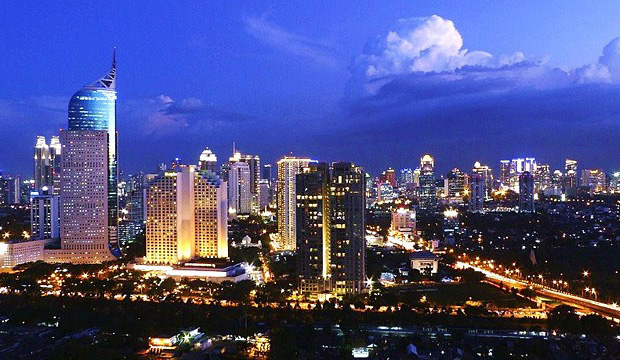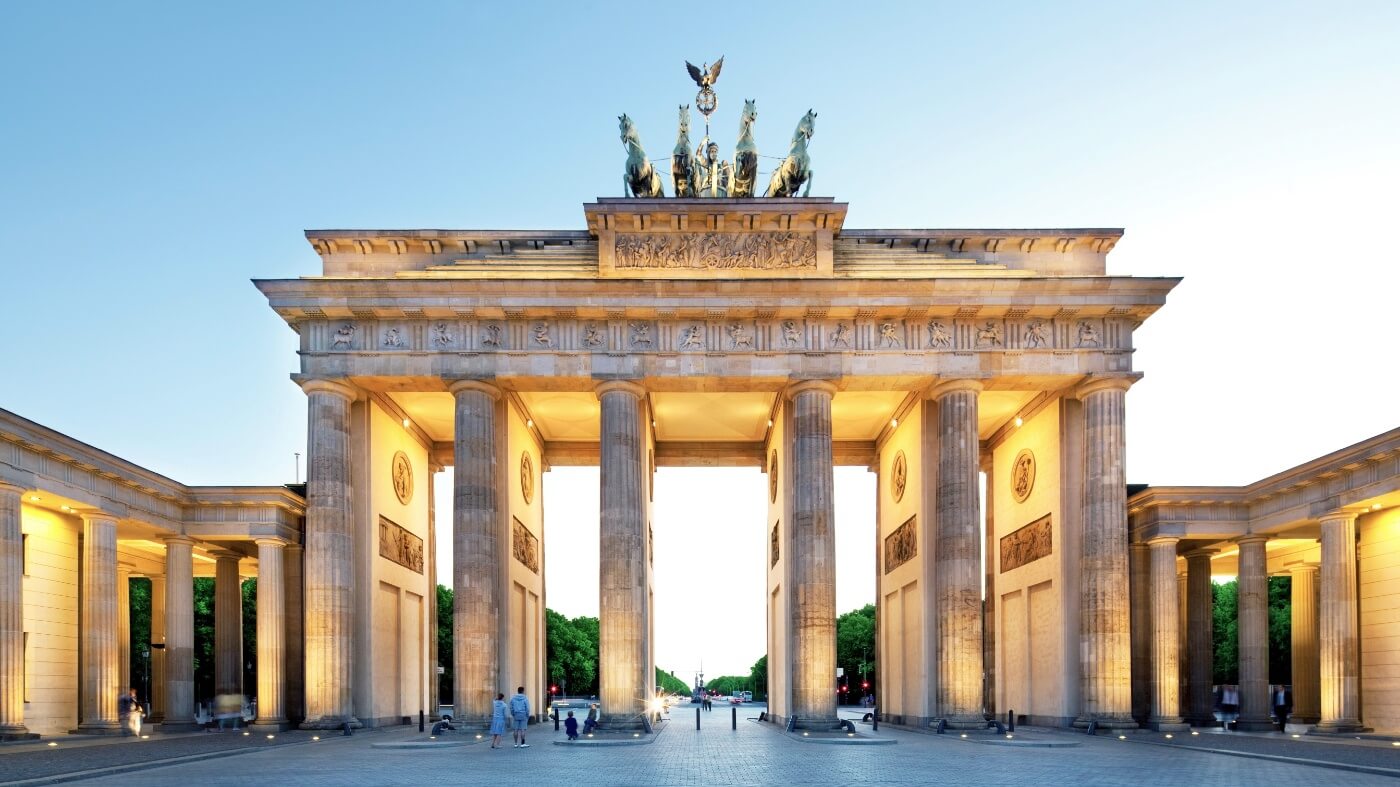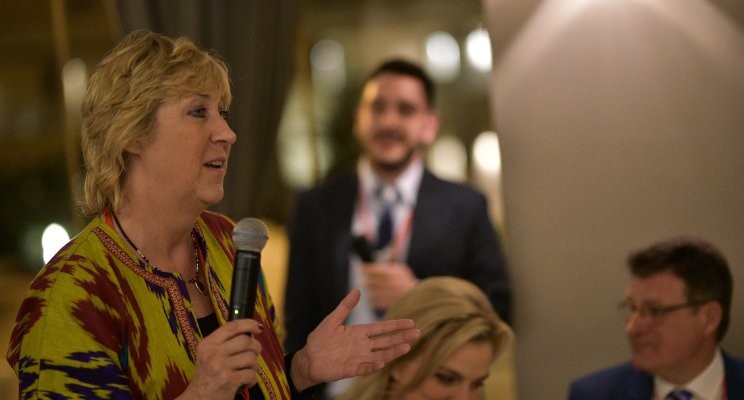

Italian tourist spending grew by 50% more than world average in 2017
Tourists in Italy spent €39.6 billion in 2017 an increase of 6.5% – more than 50% higher than the world average growth of 4.3%, according to major new research released today by the World Travel & Tourism Council (WTTC).
Overall, the total contribution of Travel & Tourism to the Italian economy was €223.2 billion in 2017, once all the direct, indirect and induced benefits were taken into account. This means that 13% of the entire Italian economy is dependent in some way on Travel & Tourism.
Other highlights of the report released today show:
Travel & Tourism supported 3.4 million jobs in 2017 (14.7% of total Italian employment)
By 2028 almost 4 million jobs in Italy are forecast to be dependent on Travel & Tourism
The travel sector grew by 2.7% in 2017, compared to growth of 1.6% in the wider economy
Italy is the 6th largest travel economy in the world
Gloria Guevara, President & CEO, WTTC, said “Travel & Tourism creates jobs, drives economic growth and helps build better societies. This is particularly the case in Italy which has some of the world’s most famous tourism sites. I commend the Italian government and private sector for their management of the tourism economy – achieving growth 50% than the world average last year – which has enormous potential to create Italian jobs and to be part of the regeneration of the Italian economy.”
“Globally, 2017 was one of the strongest years of GDP growth in a decade. Our sector now supports one in ten jobs on the plant and contributes 10% of global GDP. Over the past ten years, one in five of all jobs created across the world has been in the sector and, with the right support from Governments, nearly 100 million new jobs could be created over the decade ahead.”

Japan’s tourism grew at double the rate of wider economy in 2017
Japan’s Travel & Tourism sector grew at more than twice the rate of the wider economy in 2017, according to major new research released today by the World Travel & Tourism Council (WTTC).
The total contribution of Travel & Tourism to the Japanese economy in 2017 was JPY37,136 billion, once all the direct, indirect and induced benefits were taken into account. This represented an annual rise of 3.4% against growth of 1.6% for the wider economy.
Gloria Guevara, President & CEO, WTTC, said “This is a strong performance by the Japanese Travel & Tourism sector which reinforces the role of our sector as major contributor to economic growth and job creation. International arrivals have been very strong in recent years as Japan looks to its target of 40 million international visitors by the time of the Tokyo Olympics in 2020.”
Other highlights of the report released today show:
Travel & Tourism supported 4.2 million jobs in 2017 (6.4% of total Japanese employment)
By 2028 over 4.5 million jobs in Japan are forecast to be dependent on Travel & Tourism
Japan is the 4th largest travel economy in the world
Ms Guevara continued: “Travel & Tourism creates jobs, drives economic growth and helps build better societies. This is particularly the case in Japan where the tourism economy is growing at more than double the rate of the wider economy. This makes Travel & Tourism the perfect partner for the creation of quality long-term jobs and economic growth. We commend the Japanese Government for their commitment to creating a thriving tourism sector and managing long-term growth in a sustainable way which protects both natural resources and destination integrity.
“Globally, 2017 was one of the strongest years of GDP growth in a decade. Our sector now supports one in ten jobs on the planet and contributes 10% of global GDP. Over the past ten years, one in five of all jobs created across the world has been in the sector and, with the right support from Governments, nearly 100 million new jobs could be created over the decade ahead.”

2017 – a record year for Travel & Tourism in Indonesia
2017 was a record year for Indonesian Travel & Tourism with the sector contributing IDR787,100 billion to the nation’s economy, more than any other year on record, according to major new research released today by the World Travel & Tourism Council (WTTC).
Overall, the Indonesian Travel & Tourism economy grew by 6.4% – faster than the 5.1% recorded for the wider economy.
Other highlights of the report released today show:
Travel & Tourism supported 12.2 million jobs in 2017 (10% of total Indonesian employment) – the 4th highest of any country in the world
By 2028 almost 17 million jobs in Indonesia are forecast to be dependent on Travel & Tourism
Travel & Tourism is forecast to grow by 6.4% on average every year for the next decade – the 7th highest in the world
Gloria Guevara, President & CEO, WTTC, said “Travel & Tourism creates jobs, drives economic growth and helps build better societies. This is particularly the case in Indonesia, which is growing faster than almost every other country in the world. Much of this growth can be attributed to the positive decision by the Government to remove travel visas for citizens of 169 countries which has made Indonesia one of the most open countries in the world.”
“Globally, 2017 was one of the strongest years of GDP growth in a decade. Our sector now supports one in ten jobs on the planet and contributes 10% of global GDP. Over the past ten years, one in five of all jobs created across the world has been in the sector and, with the right support from Governments, nearly 100 million new jobs could be created over the decade ahead.”

India to add 10 million tourism jobs in the next decade
India will add around 10 million jobs in the Travel & Tourism sector by 2028 according to a major new report by the World Travel & Tourism Council (WTTC).
WTTC forecasts that the total number of jobs which are dependent in some form on Travel & Tourism will increase from 42.9 million in 2018 to 52.3 million in 2028.
India is currently the seventh largest Travel & Tourism economy in the world. Overall, the total contribution of the sector to the economy was INR15.2 trillion (US$234 billion) in 2017, or 9.4% of the economy once its direct, indirect and induced benefits are taken in to account. This is forecast to more than double to INR32 trillion (US$492 billion) by 2028.
Gloria Guevara, President & CEO, WTTC, said “Travel & Tourism creates jobs, drives economic growth and helps build better societies. This is particularly clear in India which is forecast to be one of the fastest-growing tourism economies in the world over the next decade adding 10 million jobs and hundreds of millions of dollars to the economy by 2028.
“There are some extremely proactive steps which have been introduced by the Government to increase the number of international visitors and to position itself as a destination of choice among travellers worldwide. Particularly, we recognise the introduction of e-Visa for 163 countries and the launch of Incredible India 2.0 Campaign with major improvement in the marketing and PR strategy.
“Looking to the future, India can strategically lead travel facilitation within the SAARC region by introducing a standard technological solution, modern technology and biometrics. This will enhance the travel and tourism economies in the region.
“While the country-wide change to GST is a welcome move, the Indian Government could consider looking again at the level of GST in the hospitality sector to make it more competitive with other countries in the region.
“The Indian aviation market is expanding with rapid advancement in connectivity within India. Indian airlines have booked 900 plus new aircrafts to add capacity and expand operations over next couple of years. However, airport capacity remains an issue, so we would recommend greater adoption of secondary airports across cities with multimodal connectivity between the existing and secondary ones for better passenger facilitation.
“We would also urge the public and private sectors to work together to prepare crisis management plans so the country is fully prepared with proper systems and processes in place, that can be deployed, should there be a crisis.

French tourist spending grew by 50% more than world average in 2017
Tourists in France spent €44.3 billion in 2017 an annual increase of 6.4% – 50% higher than the world average growth of 4.3%, according to major new research released today by the World Travel & Tourism Council (WTTC).
Overall, the total contribution of Travel & Tourism to the French economy in 2017 was €204.3 billion, once all the direct, indirect and induced benefits were taken into account. This means that 8.9% of the entire French economy is dependent in some way on Travel & Tourism.
Other highlights of the report released today show:
Travel & Tourism supported 2.8 million jobs in 2017 (10% of total French employment)
By 2028 over 3.3 million jobs in France are forecast to be dependent on Travel & Tourism
France is the 8th largest travel economy in the world
Gloria Guevara, President & CEO, WTTC, said “Travel & Tourism creates jobs, drives economic growth and helps build better societies. This is particularly the case in France, which has the most international visitors of any country in the world and which ranks as the 8th largest tourism economy.
“The growth in visitor spending and the commitment to long-term job creation reflects positively on France’s public and private sectors working together under the leadership of the Government to create a model of recovery and resilience.
“Globally, 2017 was one of the strongest years of GDP growth in a decade. Our sector now supports one in ten jobs on the planet and contributes 10% of global GDP. Over the past ten years, one in five of all jobs created across the world has been in the sector and, with the right support from Governments, nearly 100 million new jobs could be created over the decade ahead.”

Germany retains position as Europe’s No.1 Travel & Tourism economy
Germany has retained its position as Europe’s largest Travel & Tourism economy, according to new research released by the World Travel & Tourism Council (WTTC) today.
The research shows that Germany’s Travel & Tourism sector contributed €348.1 billion to the country’s economy in 2017. This was ahead of the United Kingdom, France, Italy and Spain.
Gloria Guevara, President & CEO, WTTC, said “Travel & Tourism creates jobs, drives economic growth and helps build better societies. This is particularly the case in Germany, the largest travel economy in Europe and the third in the world.
“The data also shows that tourism in Germany grew by 1.7% in 2017. This compares to 9.8% growth in China, 6.2% in the United Kingdom, 7% in Spain, and 5.5% in Canada. This implies that Germany is not getting its fair share of growth as other countries are increasing their tourism at a faster rate. In fact, our research shows that by 2028, India will overtake Germany for the world number three position.
“This means there is a huge opportunity for Germany to grow tourism to increase jobs and exports. According to recent WTTC research, Travel & Tourism employs more people in Germany than automotive manufacturing, banking, chemicals and financial services; so the tourism sector is the best partner Germany can have in creating new jobs. It is important that the Government puts our sector at the heart of decision making so I welcome the recent indication by Chancellor Merkel at ITB Berlin that a senior ministerial appointment for tourism will be made.
Highlights of the report released today show:
In total Travel & Tourism supported 6.1 million jobs in 2017, rising to over 6.5 million jobs by 2028, representing 15% of all German employment
The travel sector contributed €348.1 billion to the German economy in 2017
Germany is the 3rd largest travel economy in the world
The travel sector grew by 1.7% in 2017
“Globally, 2017 was one of the strongest years of GDP growth in a decade. Our sector now supports one in ten jobs on the planet and contributes 10% of global GDP. Over the past ten years, one in five of all jobs created across the world has been in the sector and, with the right support from Governments, nearly 100 million new jobs could be created over the decade ahead.”

Canada’s tourism grew 50% faster than the economy in 2017
Canada’s Travel & Tourism sector grew 50% faster than the wider economy in 2017, according to major new research released today by the World Travel & Tourism Council (WTTC).
The total contribution of Travel & Tourism to the Canadian economy in 2017 was CAD$138.8 billion, once all the direct, indirect and induced benefits were taken into account. This represented a rise of 4.5% against growth of 3% for the wider economy.
Other highlights of the report released today show:
Travel & Tourism supported 1.6 million jobs in 2017 (8.6% of total Canadian employment)
By 2028, almost 2 million jobs in Canada are forecast to be dependent on Travel & Tourism
Canada is the 13th largest travel economy in the world
Gloria Guevara, President & CEO, WTTC, said “Travel & Tourism creates jobs, drives economic growth and helps build better societies. This is particularly the case in Canada where the Government must be congratulated for its recent adoption of its ETA electronic visa program which have helped to increase international visitor numbers and enhance border security.
“Globally, 2017 was one of the strongest years of GDP growth in a decade. Our sector now supports one in ten jobs on the planet and contributes 10% of global GDP. Over the past ten years, one in five of all jobs created across the world has been in the sector and, with the right support from Governments, nearly 100 million new jobs could be created over the decade ahead.”

ABA Partners with Busing on the Lookout to Combat Human Trafficking
Washington, DC – The American Bus Association (ABA) – the industry leader advancing North American motorcoach travel and tourism – is proud to partner with Truckers Against Trafficking’s program Busing on the Lookout to combat human trafficking.
“Human trafficking is a disgrace on American roadways that needs to be eradicated,” said ABA President & CEO Peter Pantuso. “Many of our members already participate in human trafficking awareness training for their employees. We look forward to participating in the collective effort with Busing on the Lookout. We have a very diverse industry and ABA wants to be the key connector to the industry with this great program.”
Busing on the Lookout’s mission is to educate and equip all members of the busing industry with the information necessary to enable them to fight human trafficking as part of their everyday jobs. Around the world it is estimated that more than 40 million people are enslaved today. Human trafficking has been reported in all 50 states, and the number of victims in the United States is estimated in the hundreds of thousands.
Bus drivers are already making a difference in fighting this crime. A number of them have already recognized things that didn’t seem right with passengers they’ve been transporting. Their calls to law enforcement have resulted in successful victim recovery.
“Recognizing that through their sheer numbers, extensive travels, and the nature of their jobs, members of the bus industry could provide an extra set of eyes and ears for law enforcement in recovering victims and arresting traffickers, we are seeking to get everyone in the bus industry – drivers, terminal workers, maintenance staff, ticket counter personnel, dispatch operators, etc. – trained on what to look for and how to report it effectively,” explained Annie Sovcik, program director for Busing on the Lookout (BOTL).
“We are grateful to the ABA for its commitment to combatting this heinous crime,” continued Sovcik. “And we are optimistic that through this partnership, we are taking a significant step forward in creating another mobile army on our roadways that can help disrupt trafficking networks.”

Old and new threats of child sexual exploitation in South Asia
EMBARGO – 00:00, 16 MARCH 2018, Bangkok, Thailand – ‘Ancient’ and new forms of sexual exploitation that exist ‘side-by-side’ are putting the children of South Asia at risk says a new report.
Research released this week by ECPAT International claims that the sub-continent has long been a place where the sexual exploitation of children is a serious concern, with early and forced marriage, and the trafficking of children for sexual purposes established norms in many societies. However, the report says that today, children are more prone to be victimized in both the “old and the new worlds evolving side by side.”
“All across South Asia, we have ancient brothels that have always been filled with trafficked girls,” says Rajib Haldar, ECPAT Regional Coordinator for South Asia. “What is new however, is that today these may co-exist with online child sexual exploitation, or even be contributing to this trade by promoting live streaming. At the same time, the old practice of sexually exploiting out-of-school child workers is happening today alongside the cyber bullying of school pupils. In South Asia, sexually abused child brides can live next-door to university educated girls being sexually exploited through social media.”
The report says that the online sexual exploitation of children is one of the most worrying trends in the region, and there are two kinds of online risks that are increasing for children. “On one hand, we see child sexual abuse material created, and exchanged both regionally and globally,” says Haldar. “On the other hand, we see sexual harassment and extortion of children online, mainly affecting girls. In these cases, the perpetrators are generally known to the victims, often peers or adults in the circle of trust. Sexualized images are often shared publicly on social media, and have been moving from more static platforms such as Facebook, to faster moving, more private apps such as WhatsApp, WeChat or Snapchat.”
In South Asia young people are at the forefront of Internet use. For example, in Sri Lanka, more than half of young people are online; in Bangladesh, about 85 percent of the country’s 85 million Internet users are youth; in Pakistan close to half of under 18s spend more than five hours a day online; and India has one of the highest numbers of smart phone users among young people on the planet.
“South Asian young people are gaining access to the Internet at a rapid rate via mobile phones,” says Haldar. “Free Wi-Fi hotspots often act as magnets connecting children. While this is mostly positive, it has a dark side that is increasing the risk of traditional forms of exploitation and abuse.”
The ECPAT research also points a finger at the region’s burgeoning tourism industry, warning that South Asian countries need to move quickly to better understand and counter the threat posed to children through this sector. An adverse impact of the expansion of the travel and tourism sector in South Asia is the increased threat that travelling child sex offenders pose to children. And it is not only foreigners that are a danger. Cases of domestic travelling sex offenders are also on the rise.
“South Asia needs to quickly realize that the multiplication of travel options and vacation packages may imply increasing threats for children also by local travelling child sex offenders,” says the report. “While traditional destinations for foreign child sex offenders, such as those in neighbouring Southeast Asian countries, begin to tighten up legal frameworks and create child protection mechanisms, South Asia is just beginning to acknowledge and address the sexual exploitation of children through travel and tourism.”
Although solid data is not available, previous ECPAT research suggests that the sexual exploitation of children in travel and tourism has been moving beyond traditional tourist locations and has started emerging in most of the countries in the region, especially India and Nepal.

Silk Road Tourism was Alla Peressolova: UNWTO termination without explanation
Silk Road Tourism is Alla Peressolova. Alla has been the head of the UNWTO Silk Road program for 28 years. Without Alla, Silk Road Tourism wouldn’t have the brand name it has today.
At the recently-concluded ITB Berlin, the only two UNWTO events planned were connected to the Silk Road Project, and for the first time by invitation only. This included the 8th Silk Road Ministers’ Meeting, The 2025 Silk Road Tourism Agenda, and the 7th Silk Road Tour Operators Forum.
According to a reliable source within UNWTO, Alla Peressolova was very much looking forward to leading both events at ITB to conclude her UNWTO term and was then hit by a surprise when her name was not on the Berlin travel list. When trying to discuss this with UNWTO Secretary-General, Zurab Pololikashvili, he was not available to talk to her.
ITB proceeded without Alla, without her being recognized. Anna said on her LinkedIn account: “On 28 February, and after 28 years of amazing experiences, I am leaving UNWTO. Although highly excited about the new cycle that commences, I will always cherish my time here and the work accomplished within so many different areas, including Russian translation and CIS relations, communications and press, fairs strategies and the Silk Road Programme.
“Without question, the Silk Road Programme has provided me with the most rewarding years of my professional life. The continuous growth and depth of the Programme, plus the satisfaction of seeing joint actions result in tangible benefits for local Silk Road communities across our 33 Member States, has been deeply rewarding and beyond description. Because of the Silk Road I have been able to visit and explore amazing destinations and meet wonderful people – all in all, memories and friendships that have made me who I am. I am immensely grateful to my team, the true Silk Road Winners – Patrick, Elena and Nikos for their incredible professionalism, amazing enthusiasm and enormous dedication. I am sure that they will keep the Silk Road spirit healthy and alive.
“I would also like to thank all partners of the Silk Road Programme for endless support throughout these very intense years – your commitment, efficiency and spirit keeps the Silk Road Programme going. As I will definitely continue to be active within the Silk Road tourism sector, albeit in a different capacity, I would be pleased to remain connected to all of you, Alla Peressolova.”
eTN tried to get a response from the UNWTO communication team for over a week without success.
